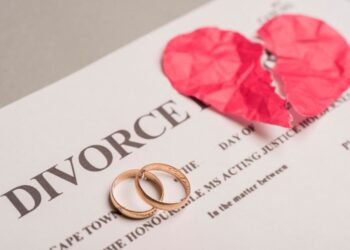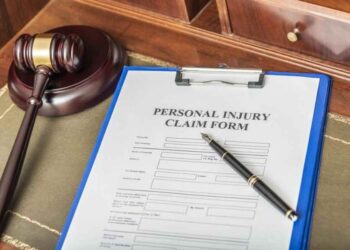In the aftermath of an accident or injury, going through the legal system can be overwhelming and daunting for personal injury victims. From understanding their rights to seeking compensation for damages, numerous steps are involved in pursuing a personal injury claim. This comprehensive guide outlines the legal process for personal injury cases, offers practical tips for navigating the system effectively, and empowers victims to protect their rights and seek the justice they deserve.
Understanding Personal Injury Law
Personal injury law includes a broad range of legal issues related to accidents and injuries caused by the negligence of others. Typical personal injury cases are car accidents, slip and fall accidents, medical malpractice, product liability, and workplace injuries. In these cases, the injured party (plaintiff) can seek compensation for various damages, such as medical expenses or lost wages, pain and suffering, and emotional distress. Often, personal injury lawyers will advise their clients on the specific elements of negligence that must be proven to thrive in a personal injury claim. By familiarizing yourself with the key principles of personal injury law and the importance of seeking legal guidance, you can protect your rights, pursuing fair compensation for your injuries and losses.
Steps to Take After an Injury
If you’ve been injured because of someone else’s negligence or misconduct, taking the following steps help protect your rights, strengthening your potential personal injury claim:
- Seek Medical Attention: Put your health and well-being as your top priority. Get medical attention for your injuries, even if they seem minor at first. Documenting your injuries and receiving appropriate medical treatment is essential for your health and legal case.
- Report the Incident: If the injury occurred in a public place, at work, or even in a motor vehicle accident, tell the incident to the appropriate authorities or management personnel. Get a copy of any incident reports or accident documentation for your records.
- Gather Evidence: Get evidence at the accident scene, if possible. Capture photos of the accident site, your injuries, and any property damage. Gather contact information from those who may have observed the incident.
- Keep Detailed Records: Keep and organize records of all medical treatment, including doctor’s visits, prescriptions, diagnostic tests, and therapy sessions. Also, document any expenses related to the injury, such as medical bills, transportation costs, and lost wages.
- Consult with a Personal Injury Attorney: It’s advisable to consult an experienced personal injury advocate as soon as possible after the accident. A knowledgeable legal practitioner can assess the merits of your case, guiding how to proceed with your claim.
Understanding the Legal Process
The legal process for personal injury cases often varies depending on the jurisdiction as well as the case’s specific circumstances. However, the following are common steps in pursuing a personal injury claim. During the initial consultation with your attorney, you’ll discuss the details of the mishap and your injuries, as well as any potential legal claims. The attorney will go through your case and explain the legal process, including the possible outcomes and timeline. Your legal advocate will thoroughly investigate the circumstances surrounding the accident to gather evidence supporting your claim. This may involve obtaining witness statements, reviewing medical records, consulting with experts, and collecting other relevant documentation.
If your legal advocate determines that you have a valid claim, they will first file a formal complaint with the appropriate court or insurance company. The defendant (the party allegedly responsible for your injuries) will be served with the complaint and allowed to respond. Personal injury claims are often resolved through negotiation between the parties involved, frequently facilitated by their attorneys or insurance adjusters. Your legal advocate will negotiate on your behalf, reaching a fair settlement to compensate you for your injuries and losses.
If a settlement cannot be reached through negotiation, your case may proceed to litigation, which will be resolved through the court system. The litigation process may involve discovery, depositions, motion practice, and a trial before a judge or jury. Whether through settlement or litigation, a personal injury case aims to reach a resolution that provides fair compensation for the injured party’s damages. If successful, you will receive compensation for medical expenses and lost income, as well as pain and suffering, and other losses incurred as a result of the accident.
Tips for Navigating the Legal System
The legal system is complex and intimidating, especially for unfamiliar people. Here are some practical tips to help personal injury victims navigate the system effectively:
- Seek Legal Representation: A knowledgeable personal injury attorney can provide invaluable guidance, advocating for you throughout the legal process. Choose a legal practitioner with experience handling personal injury cases and a track record of success.
- Be Honest and Transparent: Always be honest and transparent with your legal advocate about the circumstances surrounding the accident, your injuries, and any pre-existing medical conditions. Providing accurate information will help your attorney build a strong case on your behalf.
- Follow Medical Advice: Follow your doctor’s orders and attend all scheduled medical appointments. Failing to follow medical advice or missing appointments could undermine your claim and affect your ability to recover compensation.
- Document Everything: Keep complete records of all medical treatment, expenses, and other losses related to the accident. This documentation is crucial evidence to support your claim and demonstrate the extent of your damages.
- Stay Patient: The legal process can be lengthy and complex, and it may take time to resolve your case. Stay patient and trust that your attorney is working diligently to pursue the best possible outcome on your behalf.
- Consider Alternative Dispute Resolution: In certain cases, alternative dispute resolution methods, including mediation or arbitration may offer a faster and less adversarial manner to resolve your claim. Discuss these options with your legal aid to determine their appropriateness for your case.
Navigating the legal system as a personal injury victim can be challenging, but with the proper guidance and advocacy, you can protect your rights and seek the compensation you deserve. By understanding the steps involved in pursuing a personal injury claim, seeking legal representation, and following practical tips for navigating the process, you can increase your chances of achieving a successful outcome and moving forward with your life after an accident or injury. Remember, you don’t have to navigate the legal system alone—reach out to an experienced personal injury attorney for assistance and support.










